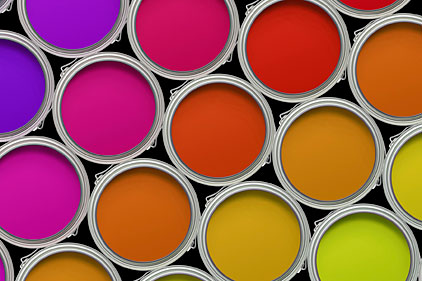Cooling costs account for approximately 20 percent of the average U.S. home’s electric bill. In warmer states, air conditioning could account for up to 70 percent of monthly energy bills.1 In office buildings, as much as 23 percent of energy costs are cooling-related and 25 percent are heating-related.2 When applied to window glass or external tiles, Spray-IT’s green thermal insulation coating can significantly reduce energy bills and the harmful cumulative effects mass energy consumption has on the environment.
The coating uses radically different materials to achieve low-cost, high-insulation performance rather than the typical expensive silver needed for traditional window and thermal coatings. With an optical system design, Spray-IT provides an inexpensive lithium-fluorine co-doped tin oxide coating material called LiFTO that is suitable for spraying directly onto glass or tile surfaces, to form an insulation layer. The LiFTO coating can be applied easily either indoors or in open-air conditions. Both manufacturing of the coating material and deployment are easy and economical, making it more affordable for businesses and individuals to use the technology to reduce energy bills.
The technology works under the same principle as other coating technologies, but is currently the only one available in an easy-to-apply spray form. Spray-IT reflects unwanted UV rays, yet allows light to pass through easily. While the coating is currently being used primarily on glass and tile surfaces, alternate uses are being tested. These include use as thermal insulation for solar panels to decrease panel temperature for improved electricity generation, and on cars, buses and trains for better air-conditioning efficiency.
Conventional thermal insulation layers are coated using expensive materials, such as silver, and the coating process requires expensive industrial procedures such as sputtering in a controlled environment including a vacuum chamber. This process is too slow for mass production, and the high cost often discourages companies from using coated glass and tile surfaces that would typically lower energy costs. This leads to higher energy consumption to maintain an adequate building temperature in hot and cool climates, which negatively impacts the environment.
“Managing energy consumption is critical, especially in warm and cool climates where offices and homes, without proper thermal insulation, present a huge draw on the energy grid,” said Dr. Tzer-Shen Lin, Division Director, ITRI’s Electronic Materials & Devices Research Group. “ITRI’s Spray-IT thermal insulation coating makes it easy for companies and individuals to afford thermal insulation so energy can be conserved while reducing the overall carbon footprint. Spray-IT is inexpensive to produce, easy to apply and environmentally friendly.”
ITRI has applied for 14 patents for Spray-IT, 12 of which have been granted. ITRI is in the process of licensing the technology in Taiwan. Interested companies can contact ITRI at 408-428-9988, or 0800@itri.org.tw for more information.
References



Report Abusive Comment